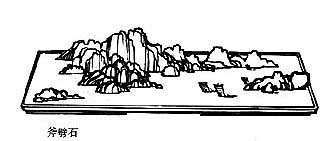詩
經
Shi Jing 
 – The Book of Odes
– The Book of Odes
The oldest collection of Chinese poetry, more than three hundred songs, odes and hymns. Tr. Legge (en) and Granet (fr, incomplete).
Shijing I. 6. (70)
The hare is slow and cautious ;
The pheasant plumps into the net.
In the early part of my life,
Time still passed without commotion.
In the subsequent part of it,
We are meeting with all these evils.
I wish I might sleep and never move more.
The hare is slow and cautious ;
The pheasant plumps into the snare.
In the early part of my life,
Time still passed without anything stirring.
In the subsequent part of it,
We are meeting with all these sorrows.
I wish I might sleep and never move more.
The hare is slow and cautious ;
The pheasant plumps into the trap.
In the early part of my life,
Time still passed without any call for our services.
In the subsequent part of it,
We are meeting with all these miseries.
I would that I might sleep, and hear of nothing more.
Legge 70

The Book of Odes – Shi Jing I. 6. (70) – Chinese on/off – Français/English
Alias Shijing, Shi Jing, Book of Odes, Book of Songs, Classic of Odes, Classic of
Poetry, Livre des Odes, Canon des Poèmes.
The Book of Odes, The Analects, Great Learning, Doctrine of the Mean, Three-characters book, The Book of Changes, The Way and its Power, 300 Tang Poems, The Art of War, Thirty-Six Strategies
Welcome, help, notes, introduction, table.
Index – Contact – Top
